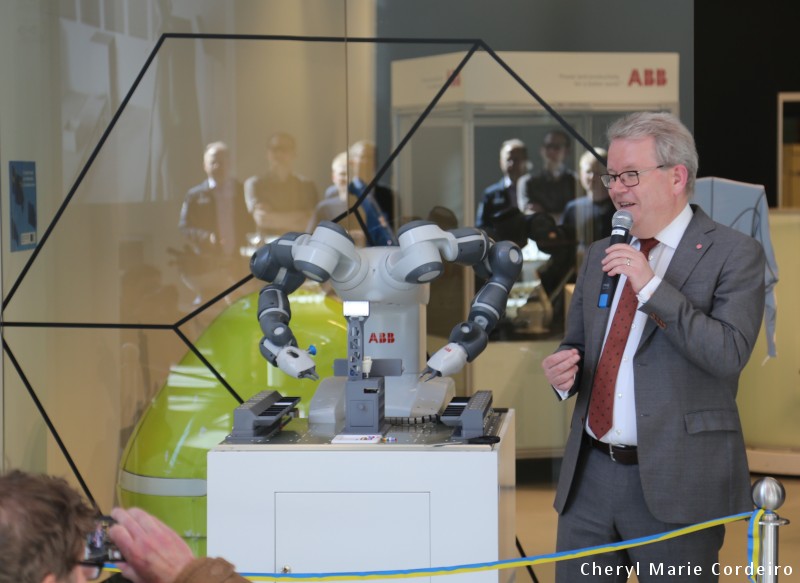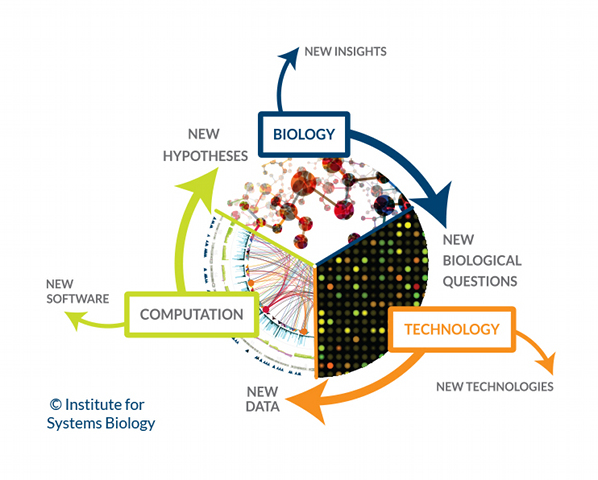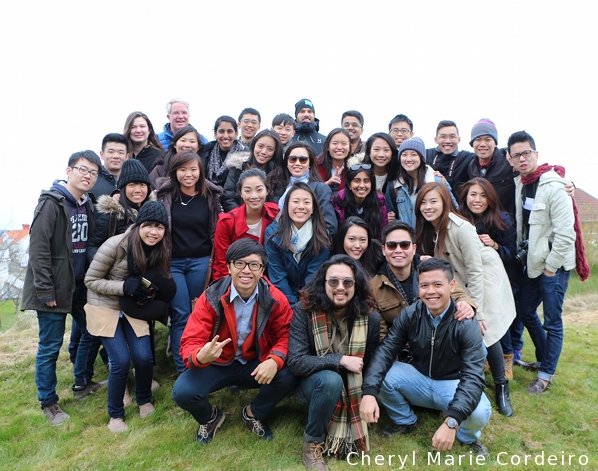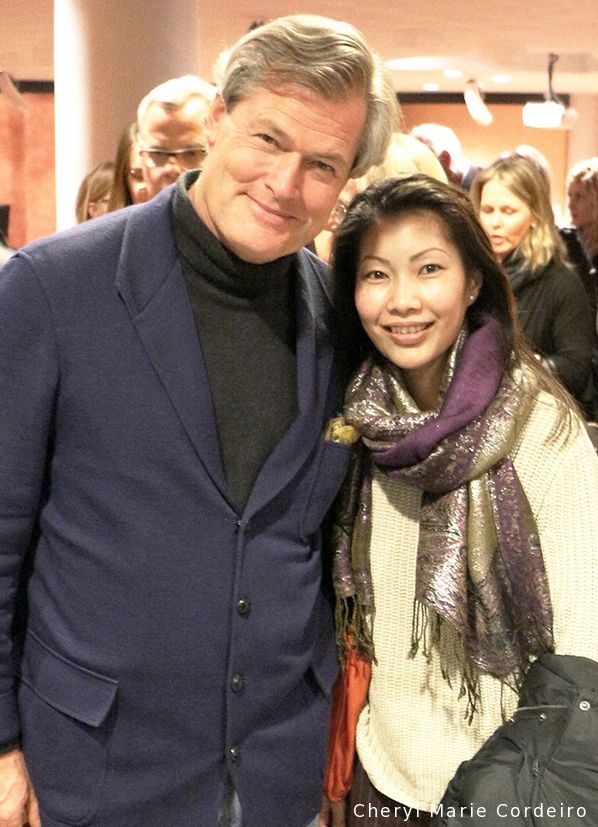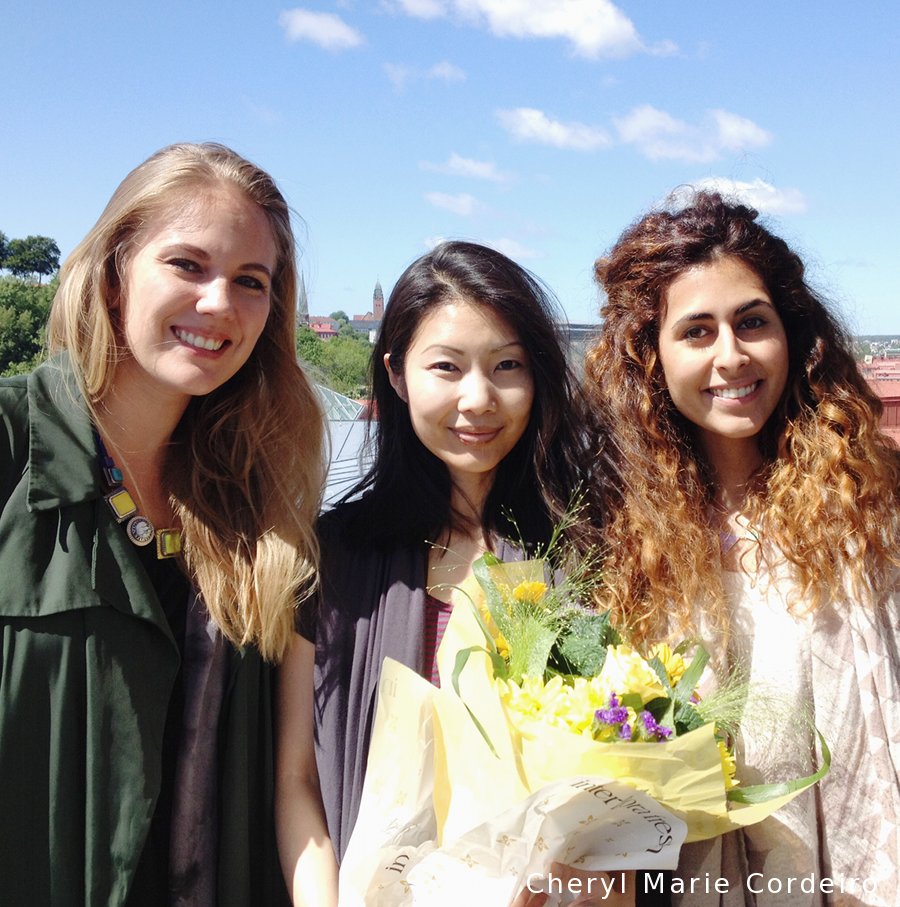Anders Teljebäck, Chairman of the Municipal Council, Västerås, Sweden, was guest of honour at the CRTC opening ceremony.
Text & Photo © JE Nilsson, CM Cordeiro 2017
The opening ceremony of the Collaborative Robot Test Center (CRTC) at Robotdalen, Expectrum, in Västerås, Sweden, took place on 4 May 2017. CRTC is located within the creative learning hub of Expectrum, Västerås city’s meeting place for technology entrepreneurs, thought leaders and innovators. In terms of providing pioneering robotics solutions, CRTC, a joint project between ABB, Robotdalen and Mälardalen högskolan, will offer pre-studies to SME automation processes in use of collaborative robot, YuMi (Bergman, 2017; Löfvenberg, 2017).
Urban landscapes increasingly leverage advancing technologies to co-create socio-economic infrastructures and processes (Wakeford, 2004). In that aspect, CRTC’s lab location and its evolution as a robotics solution unit now officially open, could be seen as marking in contribution towards a larger global movement in the democratising of technology.
